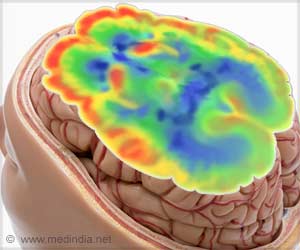
‘These results help explain why damage to the retrosplenial cortex in Alzheimer's disease is so debilitating, and why these patients get lost even in very familiar environments.’
Tweet it Now
Researchers observed that a brain region long-known to be involved in new learning - the hippocampus - was involved in tracking distance to a destination in a 'newly learned' environment.However, when navigating a familiar place, another brain region - the retrosplenial cortex - was found to "take over" tracking the distance to the destination.
"Our findings are significant because they reveal that there are in fact two different parts of the brain that guide navigation," says Professor Hugo Spiers (UCL Experimental Psychology), senior author on the study.
"Which part gets used depends on whether you are in a place you know well or a place you only visited recently. The results help to explain why damage to the retrosplenial cortex in Alzheimer's disease is so debilitating, and why these patients get lost even in very familiar environments.."
The research team worked with students from UCL and Imperial College London. The students' brain activity was monitored as they navigated a simulation of their own familiar campus and the other university's campus, which was 'newly learned' days before.
Advertisement
"We wondered whether navigating a very familiar place would be similar to using a Sat-Nav, seeing as you don't need to think as much about where you're going in a familiar place," says Professor Spiers. "However, the results show this isn't the case; the brain is more engaged in processing the space when you are using your memory."
Advertisement
Source-Eurekalert














